Two surprise nations tell residents to prepare for war: ‘Situation is serious’
Millions of residents in two neighbouring countries are being told to start hoarding food in preparation for armed conflict.
World
Don't miss out on the headlines from World. Followed categories will be added to My News.
Millions of residents in Sweden and Finland have been warned to prepare for the possibility of war as Russia’s full-scale invasion of Ukraine rages on.
Sweden began sending millions of pamphlets on Monday advising residents on how to prepare for possible war, while across the border, Finland launched a new preparedness website, providing residents information on different crises.
The Nordic neighbours have dropped decades of military non-alignment to join the US-led defence alliance NATO in the wake of Russia’s 2022 invasion of Ukraine.
“The security situation is serious and we all need to strengthen our resilience to face various crises and ultimately war,” said Mikael Frisell, the director of the Swedish Civil Contingencies Agency (MSB) which sent out the brochures.
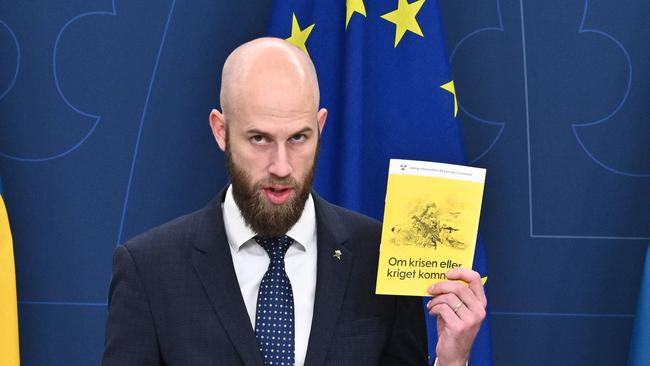
Since the start of the war in Ukraine, Stockholm has repeatedly urged Swedes to prepare both mentally and logistically for the possibility of an armed conflict.
After the end of the Cold War, the country drastically slashed its defence spending as it focused its military efforts on international peacekeeping missions.
But it reversed course following Russia’s 2014 annexation of Crimea. Since then, Stockholm has reintroduced limited conscription, massively increased defence spending and reopened a garrison on the Baltic Sea island of Gotland.
It subsequently strengthened bomb shelters, shored up drinking water supplies and transport infrastructure, appointed a minister of civil defence and established a Psychological Defence Agency aimed at combating disinformation.
Sweden has not gone to war in more than two centuries.
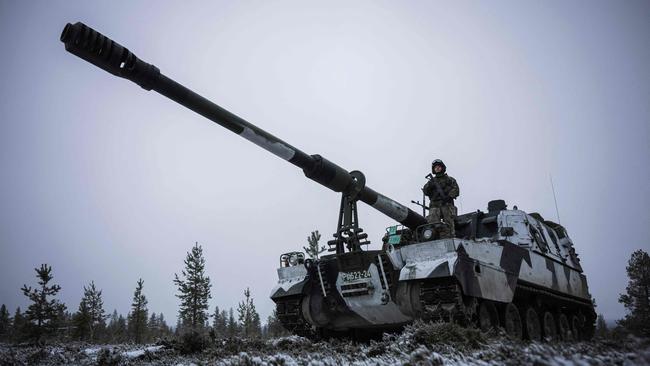
5 million to receive war pamphlet
5.2 million households in Sweden are set to receive the pamphlet, titled If Crisis or War Comes, in the next two weeks.
The 32-page bookletis an updated version of a pamphlet that Sweden has issued five times since World War II and contains information on how to prepare for war, natural disasters and cyber or terror attacks.
The new version doesn’t mention Russia, Ukraine or other country by name.
It warns residents: “Military threat levels are increasing. We must be prepared for the worst-case scenario – an armed attack on Sweden.”
It also notes: “If Sweden is attacked, we will never surrender. Any suggestion to the contrary is false.”
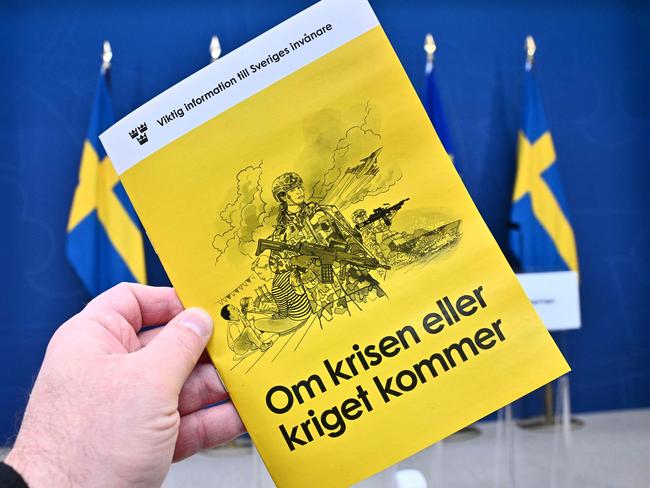
The tips include stocking up non-perishable food and water, keeping cash on hand and growing fruit and vegetables in gardens.
The previous version from 2018 was the first time the pamphlet had been sent out since 1961 at the height of the Cold War.
MSB said the updated version had a stronger focus on preparing for war than in 2018.
The brochure is available in print in both Swedish and English and digital versions are available in several other languages – including Arabic, Farsi, Ukrainian, Polish, Somali and Finnish.
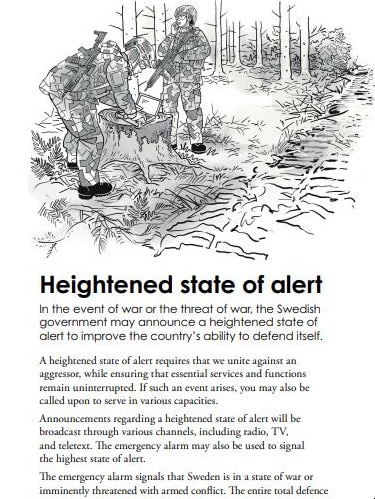
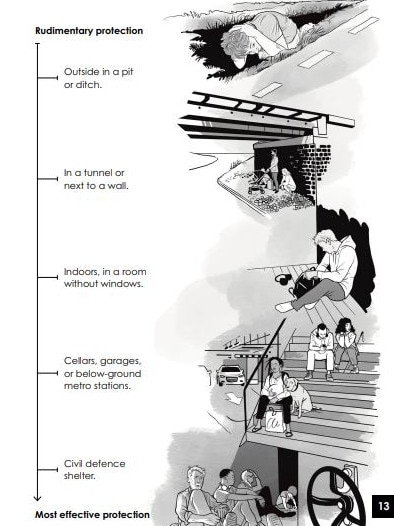
“Could be war in Sweden”
Civil Defence Minister Carl-Oskar Bohlin made waves in January when he warned “there could be war in Sweden”.
Sweden’s then army chief Micael Byden also alarmed many when he days later said “Swedes have to mentally prepare for war”.
More recently, Stockholm’s Defense Minister Pål Jonson warned last month Russia could attack the country in an attempt to control the Baltic Sea.
“Russia poses a threat to Sweden, as it does to the rest of NATO. We cannot rule out a Russian attack on our country,” Mr Jonson said in an interview with Polish newspaper Rzeczpospolita.
He added Sweden was “implementing an ambitious program of expanding” its navy in response to the threat.
Finland launches new website
Meanwhile, in a separate move, the government in Finland launched a website gathering information on preparedness for different crises.
Finland shares a 1340km border with Russia and Helsinki has maintained a higher level of preparedness.
But after Moscow’s invasion of Ukraine, Helsinki announced plans to build a 200km border fence with Russia.
Three metres tall and topped with barbed wire, it is due to be completed by 2026.
The country last year closed its eight border crossings with Russia, following an influx of migrants which Helsinki claimed was a hybrid attack orchestrated by Moscow.
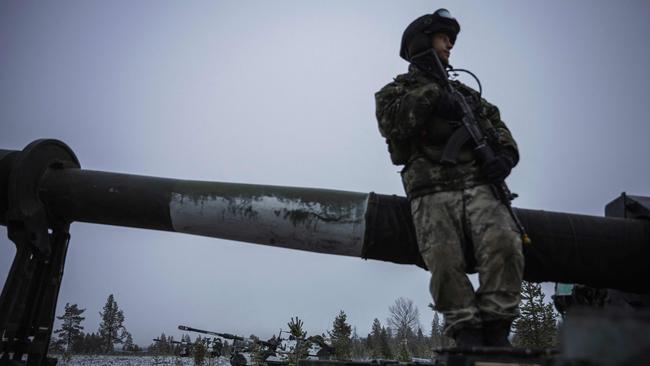
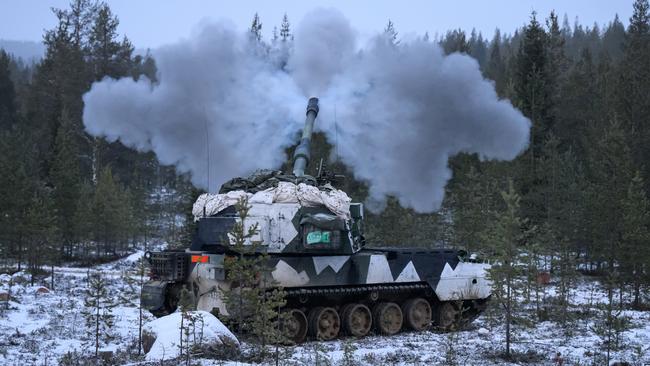
Germany and Finland warn of ‘hybrid warfare’
Germany and Finland launched a probe on Monday after an undersea cable linking the countries was severed, warning of the threat of “hybrid warfare” amid heightened tensions with Russia.
The countries’ foreign ministers said in a joint statement they were “deeply concerned” by the cutting of the communications link through the Baltic Sea.
“The fact that such an incident immediately raises suspicions of intentional damage speaks volumes about the volatility of our times,” they said.
“Our European security is not only under threat from Russia’s war of aggression against Ukraine, but also from hybrid warfare by malicious actors.”
“Safeguarding our shared critical infrastructure is vital to our security,” they added.
Finnish network operator Cinia said earlier that the cable between Finland and Germany, both members of the NATO military alliance, had been cut for unknown reasons.
The fault was detected in the undersea cable C-Lion1, Cinia said in a statement, adding that all services provided by the cable were down.
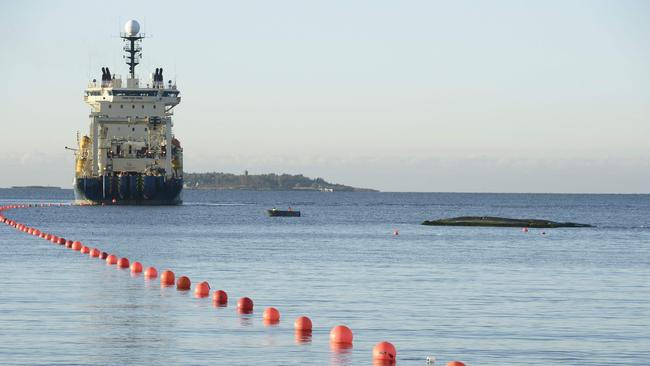
A Cinia spokesman quoted by Finnish media added that “all the fibre connections in it are cut”.
“At the moment there isn’t a possibility to assess the reason for the cable break but these kinds of breaks don’t happen in these waters without an outside impact,” the spokesperson said.
But internet traffic had not suffered any disruptions, said Samuli Bergstrom, head of the Cybersecurity Centre at the Finnish Transport and Communications Agency (Traficom).
“Fortunately, there are several data cable routes between Finland and abroad, so a single cable failure will not affect internet traffic,” Bergstrom was quoted as saying by the broadcaster Yle.
The 1,172-kilometre (730-mile) fibre-optic cable has carried communications between Helsinki and Germany’s Rostock since 2016.
– with AFP
Originally published as Two surprise nations tell residents to prepare for war: ‘Situation is serious’




